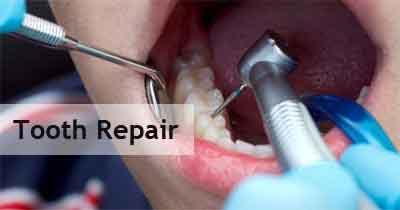- Home
- Editorial
- News
- Practice Guidelines
- Anesthesiology Guidelines
- Cancer Guidelines
- Cardiac Sciences Guidelines
- Critical Care Guidelines
- Dentistry Guidelines
- Dermatology Guidelines
- Diabetes and Endo Guidelines
- Diagnostics Guidelines
- ENT Guidelines
- Featured Practice Guidelines
- Gastroenterology Guidelines
- Geriatrics Guidelines
- Medicine Guidelines
- Nephrology Guidelines
- Neurosciences Guidelines
- Obs and Gynae Guidelines
- Ophthalmology Guidelines
- Orthopaedics Guidelines
- Paediatrics Guidelines
- Psychiatry Guidelines
- Pulmonology Guidelines
- Radiology Guidelines
- Surgery Guidelines
- Urology Guidelines
Alzheimer's drug may help boost natural tooth repair

London : Dental fillings may soon become a thing of the past, as scientists have found a way to renew living stem cells in tooth pulp using an Alzheimer's drug which could help naturally repair decaying teeth.
Following trauma or an infection, the inner, soft pulp of a tooth can become exposed and infected.
In order to protect the tooth from infection, a thin band of dentine is naturally produced which seals the tooth pulp, but it is insufficient to effectively repair large cavities.
Currently dentists use man-made cements or fillings, such as calcium and silicon-based products, to treat these larger cavities and fill holes in teeth.
This cement remains in the tooth and fails to disintegrate, meaning that the normal mineral level of the tooth is never completely restored.
Scientists from the Dental Institute at King's College London have proven a way to stimulate the stem cells contained in the pulp of the tooth and generate new dentine the mineralised material that protects the tooth in large cavities, potentially reducing the need for fillings or cements.
The novel, biological approach could see teeth use their natural ability to repair large cavities rather than using cements or fillings, which are prone to infections and often need replacing a number of times.
Indeed when fillings fail or infection occurs, dentists have to remove and fill an area that is larger than what is affected, and after multiple treatments the tooth may eventually need to be extracted.
As this new method encourages natural tooth repair, it could eliminate all of these issues, providing a more natural solution for patients.
Significantly, one of the small molecules used by the team to stimulate the renewal of the stem cells included Tideglusib, which has previously been used in clinical trials to treat neurological disorders including Alzheimer's disease.
This presents a real opportunity to fast-track the treatment into practice.
Using biodegradable collagen sponges to deliver the treatment, the team applied low doses of small molecule glycogen synthase kinase (GSK-3) to the tooth.
They found that the sponge degraded over time and that new dentine replaced it, leading to complete, natural repair.
Collagen sponges are commercially-available and clinically-approved, again adding to the potential of the treatment's swift pick-up and use in dental clinics.
"The simplicity of our approach makes it ideal as a clinical dental product for the natural treatment of large cavities, by providing both pulp protection and restoring dentine," said Paul Sharpe from King's College London.
"In addition, using a drug that has already been tested in clinical trials for Alzheimer's disease provides a real opportunity to get this dental treatment quickly into clinics," Sharpe said.
The study was published in the journal Scientific Reports.

Disclaimer: This site is primarily intended for healthcare professionals. Any content/information on this website does not replace the advice of medical and/or health professionals and should not be construed as medical/diagnostic advice/endorsement or prescription. Use of this site is subject to our terms of use, privacy policy, advertisement policy. © 2020 Minerva Medical Treatment Pvt Ltd